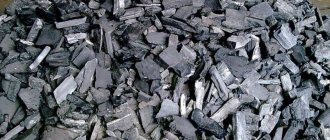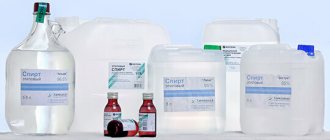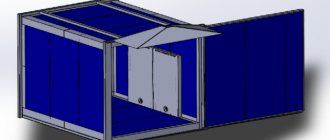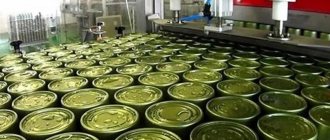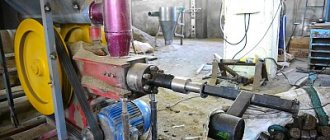Manufacturing food products in Russia is one of the most profitable businesses. But the wide range of available products means that not every product finds its buyer. Before choosing a type of business, you should find out how profitable it is. Sunflower oil production is an interesting business that attracts many entrepreneurs. This type of product is in demand and is in great demand among the population. Before you start creating a business, you need to familiarize yourself with some subtleties.
Profitable or not?
It is worth knowing that the production of sunflower oil and its sale is the prerogative of many small and medium-sized enterprises. This is due to the low investment required to start a business. Also, the activity pays off very quickly. There is a high level of competition in this segment, but with competent management, a well-thought-out business plan for the production of sunflower oil and a clear marketing policy, the entrepreneur will not be left without good revenue.
Sales volumes of oil exported annually set new records at 300,000 tons per year. Prices for seeds versus oil on the world market are $300 and $790 per ton. This makes oil production profitable not only for sale abroad, but also for supply to the domestic market.
Sunflower oil production technology
Oil production technology includes several stages, each of which is worth getting acquainted with. First you need to rid the raw materials of husks. Processing of seeds is carried out using the following methods:
- by sifting through a sieve with different holes in shape and size;
- by blowing raw materials with air;
- by separating seeds according to ferrimagnetic properties.
The shell can be removed in several ways:
- by splitting the husk with a blow;
- compression of seeds;
- cutting in half;
- by peeling off the husks on a rough surface.
The sequence of actions is as follows - first perform a spin cycle. The seeds are placed in a roasting pan and heated to a temperature of 100º C, gradually pouring in water and stirring constantly. Then the oil is squeezed out through a press. The stronger the unit, the more oil it will squeeze out. But the seeds are of no small importance.
Important! In addition to oil, cake and husks appear at this stage. They are subsequently sold as cattle or pig feed. From 1 ton of raw materials, 422 kg of oil, 356 kg of cake, 172 kg of skins are obtained.
Refining is the second stage. The output is a special type of oil, which is characterized by a pleasant smell and yellowish color. Refining technology is divided into 4 stages:
- Removal of mechanical substances. The product undergoes settling, filtration, and centrifugation procedures. At this stage, the oil is sold as unrefined. It is characterized by a dark color and a pungent odor.
- Treatment takes place in hot water at a temperature of 65-70ºС. The process removes phosphatides. Due to this, the oil becomes lighter.
- Deodorization - getting rid of fatty acids. This will help remove the unpleasant smell and taste. The oil becomes marketable.
- Freezing is necessary to obtain a colorless and viscous oil.
Packaging the products in containers is the last step. Thanks to the complete line, the process of filling oil into bottles is simplified and occurs automatically. If it is a mini-factory, then you can bottle it manually.
What to do with production waste?
During the production of sunflower oil, by-products are formed:
- baskets;
- husk;
- meal;
- cake
Each of them has found wide application for one purpose or another. Husks, cake and meal contain a high level of proteins and vitamins, making them the most valuable and relatively inexpensive feed for livestock. During oil production, the amount of husk formed is 15% of the total volume of raw materials. In order to avoid costly disposal, in addition to livestock farming, it is actively used for the following purposes:
- production of ethyl alcohol and furfural;
- loosening the soil in gardening;
- mushroom cultivation;
- production of decorative tiles with heat and sound insulation properties;
- biogas production;
- production of granular fuel.
Sunflower meal contains approximately 35% protein, amino acids, vitamins, fiber and minerals. All these elements have a beneficial effect on the growth of young animals, which is why meal is used in the manufacture of feed for fish, pigs, poultry and cattle. Sunflower baskets are an excellent food for ruminants.
Oil mill premises
The main requirements for the workshop are directly related to production volumes. The territory for the oil mill must meet the following conditions:
- have an area of 150 sq. m.;
- divided into several zones - production, warehouse for raw materials, warehouse for finished products;
- be equipped with communications - electricity, water supply, sewerage;
- fully comply with safety conditions - be protected from spontaneous combustion;
- comply with sanitary standards.
Important! If production will be carried out at home, then one room is enough.
The workshop area should include the following premises:
- the area where the equipment will be located must be 60 m2;
- warehouse for storing raw materials – 50 m2;
- room for storing finished products – from 30 m2;
- waste storage area – 40 m2;
- room for administration and workers - 25 m2.
Depending on the condition of the structure, repairs, distance from the center or city, you need to pay about 150,000 rubles for rent. You also need to pay 80,000 for utilities. It is better to choose a building that has convenient access for cars to make it convenient to load goods and unload raw materials.
The waste storage room must be equipped with a fire protection system, since the cake has the property of spontaneous combustion. The temperature in the warehouse must be constantly monitored and checked. You can do this in the old proven way. A wooden twig is stuck into the cake. When it gets hot, the by-products need to be removed.
The storage for raw materials should be spacious, sunflower seeds will be scattered in it. The thinner the layer of product, the longer it will last. In such a warehouse, 20 to 40 tons of raw materials are scattered.
To store finished products you will need containers with a capacity of 10-15 cubic meters. They are placed in a room with an area of 20-30 square meters. m. 5-7 pieces each. It is recommended to choose barrels made of stainless steel.
If you use containers made of a different material, problems with SES will arise. When storing sunflower oil in rusting steel, the taste and beneficial properties of the product will deteriorate. But in order to save money, it is allowed to use standard aluminum milk cans.
Important! The devices and equipment for producing the product are quite powerful, so it is necessary to have at least 380 W of wiring in the workshop.
For production workshops for the production of food products, the SES imposes certain requirements. Mini-dairy with an area of 40 sq. m. must meet the following conditions:
- The concrete floor has been poured.
- Suspended panels and ceilings are prohibited. The walls must be tiled or plastered to a height of more than 2 meters.
- Purchase lamps and chandeliers only with explosion-proof characteristics.
- Availability of fire alarms and fire extinguishers.
- A ventilation system, hot and cold water, sewerage, and treatment buildings must be present.
A squeezing and regenerative unit can be located in the same area. If the area is large, it is recommended to equip two separate zones.
About profitability and wastelessness
Sunflower oil is waste-free. This means that by-products resulting from the production of a product are used in other areas. Related components are sold to third parties.
The husks are used to make pellets - pet food. They are pre-pressed into briquettes and delivered to customers. The husk is sold to brick factories, and the cake is sold to farms. The sale of waste can be taken into account as additional profit, but most often sales are reflected in the cost price, reducing the price of the output product.
Oil suppliers and market
When creating a business for the production of sunflower oil, it is necessary to resolve the most important issues: where to sell the products and where to purchase raw materials. It is recommended to find a permanent supplier; it will be easier to plan profits there.
If an entrepreneur is engaged in trade, then it will be easier for him - he will connect to his network of customers who constantly purchase goods from him. The oil will be poured into a ready-made sales scheme.
It is recommended to find a supplier in the fall that is located geographically close to the enterprise. If he enters into an agreement for regular supplies of oil in small quantities and with deferred payment, this will be an ideal option. This scheme will help to minimize the cost of seeds, thereby increasing profitability.
The oil can be sold to shops, supermarkets, and private enterprises that order products as the main raw material for creating their goods. The component is used in various fields - soap making, food preservation, paint and varnish production, cosmetics and medical industries.
Important! If you can’t find a customer, the oil can be supplied to Turkey. It is in great demand there.
Which oil is more profitable to produce?
Having decided to start your own business producing vegetable oil, you need to decide what kind of oil to produce – refined or unrefined. The main differences between these 2 types are the degree of purification of the product.
The production of refined oil is a more labor-intensive process. It is purified using many chemical-technological methods so that the output is a product of a certain degree of transparency, with the absence of foreign tastes and odors. And the production of unrefined oil is based only on mechanical filtration of the product, which gives it a specific smell and taste.
And despite the fact that the production of unrefined oil will require lower costs, you should not rely only on it - profits will decrease significantly. To promote your brand and earn more income, you should expand the range of products offered to customers. In addition, modern technologies make it possible to produce several types of oils at once on one production line.
Required Equipment
The technological process for producing oil is quite labor-intensive and complex. It will take time to set up and automate. It is important to correctly calculate the indicators.
The main thing is to purchase a unit that will produce oil. The price is very high - about $20,000, but the enterprise cannot manage without it. It is recommended to find trusted, good suppliers who will sell an excellent quality machine at an affordable price.
If the scale of oil production is small, then in order to save money, you can purchase a manually controlled unit. To make a good profit, it is necessary to purchase large volumes of raw materials, and to process them, the plant must have an automatic line.
To produce sunflower oil, you need to purchase a number of machines:
- oil press;
- filter;
- fryer;
- separator
Approximate costs for units:
- a separator for initial seed cleaning costs about 50,000;
- a crusher-winter unit, which will separate the peel from the seeds, will cost about 60,000;
- machine for grinding raw materials – 500,000;
- fryer - 300,000;
- oil press – 600,000;
- refining apparatus – 600,000;
- automatic bottling line – 300,000.
When starting a business, you can get by with a mini-factory. When a sales market is found and the technological side is established, then they expand.
Differences between a mini-factory and large enterprises
When planning your own production of high-quality vegetable oil, you should pay attention to ready-made mini-plants, which have a number of advantages in contrast to large enterprises.
Mini vegetable oil extraction plant
- Compactness. Mini-factories do not require large areas, so a novice entrepreneur does not need to spend significant funds if the premises are rented or specially built.
- Mobility. If necessary, there are no difficulties when moving a mini-plant focused on the production of sunflower oil to another location.
- Economical. Significant savings are observed in various moments - the purchase of equipment, wages, since a small number of people service the production lines.
- Efficiency. In a small enterprise, you can quickly make changes to the technological process in accordance with modern requirements.
Recruitment
If the workshop has an automated line, the number of employees is reduced to a minimum. But if you hire people, they must be experienced workers who know how to operate machines.
Only specialists should work on the units. If the plant is medium-sized, then it is necessary to hire loaders, drivers and maintenance personnel. Statistics show that finding a professional with experience is not easy. In this case, you can hire young certified people and develop a scheme for them according to which they will work.
Revenue and profit
An important section of a business project is the calculation of projected income. To do this, the upcoming costs and possible profits are summed up. Costs that an entrepreneur will face:
- equipment and machinery – 2,000,000 rubles;
- carrying out preparatory work in the workshop – 300,000;
- obtaining documents for carrying out activities – 50,000.
The total is about 2,350,000 rubles. The entrepreneur will also spend money monthly on the following needs:
- workshop rental from 500 sq. m. – 100,000;
- issuance of salaries to staff for 3 people – 60,000;
- payment of taxes – 70,000;
- marketing activities, payment for utilities, transportation costs - 100,000;
- purchase and delivery of raw materials for oil production – 700,000.
As a result, the cost of the finished product is 1,030,000 rubles. To calculate income, take the work of equipment for 1 shift daily. Oil production per month will be:
- (5 tons per day: 3 shifts) * 30 days = 50 tons;
- oil is sold on average for 40 rubles per 1 liter, therefore, the income will be equal to: 40 * 50,000 = 2,000,000;
- profit will be: 2,000,000 – 1,030,000 = 970,000 rubles.
Capital costs will pay off in 2.5 months: 2,350,000/970,000=2.4
Vegetable oil consumption in the country
There is some potential for market growth. The buyer in the country is satisfied, for the most part, with the Russian product, the share of which is 83.5%.
Table 1. How much vegetable oil was consumed in 2015-2018?
| Year | Consumption indicator, thousand tons |
| 2018 | 6431 |
| 2017 | 6273 |
| 2016 | 5717 |
| 2015 | 5425 |
A noticeable increase occurred in 2020 due to the large harvest of oilseed crops in 2016.
According to the base forecast scenario, consumption will continue to grow by 2% every year and reach 7,782 thousand tons in 2025.
The market has not exhausted its potential, and this provides excellent opportunities for entrepreneurs to start a new plant.
How to organize a mini strike
To open a small workshop for producing sunflower oil, you will need minimal investment. The price for a churn that will produce 10-17 liters per hour ranges from $200 to $450. Other units required for operation:
- a filter to clean the product will cost $100-200;
- the cost of additional tools, products, and kits will be about $100.
Capital investments are small, so agricultural producers often open private mini-dairies.
The modern design for producing oil is a press extruder. It is visually similar to a meat grinder. Equipment for the production of sunflower oil
consists of three parts:
- bunker for supplying seeds;
- auger compartment where raw materials are crushed;
- nozzle for squeezing oil.
After receiving the product, it will need to be filtered. For small production volumes, canvas bags are used for filtration. After the process, the oil must be kept in a cool room for some time. Then it is poured into barrels.
If sediment forms at the bottom, the oil is filtered again. For larger oil mills, it is better to purchase special filters that will quickly clean the product.
It is better to open a small production when the owner plans to grow sunflowers on his own. Due to this, he will save a significant amount on the purchase of seeds and their delivery.
As the practice of entrepreneurs shows, the profitability of a mini-enterprise can reach 25%. The first investment pays off within six months. Here it is important to find consumers and establish the technological process.
To open your own creamery, you do not need to obtain permits or licenses. The business owner must register as a sole proprietor. Since the activity is related to food, sanitary and epidemiological stations will regularly visit the owner to check the quality. It is also impossible to do without control of the fire service.
Important! When opening a small plant for the production of sunflower oil, it is recommended during registration to ensure that the owner is recognized as a manufacturer of agricultural products. In this case, he will pay taxes at reduced rates.
Organizational plan
Opening a project related to the production of vegetable oil will require significant investments. Therefore, it is recommended to register such a business as a manufacturer of agricultural products. In this case, the entrepreneur will be able to take advantage of a number of benefits provided by tax legislation. To obtain the status of an agricultural producer, the necessary package of documents is submitted to the government agency, and a taxation system is selected.
Typically, the activities of such enterprises are carried out on the Unified Agricultural Tax with a rate of 6% of profit.
The documents indicate OKVED code 10.41 (Production of oils and fats). To organize a business in this area you will not need a license or special permission; you just need to get approval from the following services:
- fire department;
- gas;
- water utility;
- sanitary and epidemiological;
- electricity service.
Rent of production premises
When carrying out organizational work related to the opening of a project, special attention should be paid to renting a premises where all stages of vegetable oil production will take place; its area should correspond to the volume of products being manufactured. In addition, you will need a place to store raw materials and by-products. A properly selected room must meet a number of requirements:
- proportionality between the area of the premises and the scale of the planned production;
- the possibility of dividing into several blocks for arranging production workshops and warehouses for storage;
- availability of all necessary communication networks;
- compliance with fire and sanitary standards.
All units must be equipped with fire extinguishing devices and devices for measuring product temperature.
Due to the ability of the cake to spontaneously combust, it is important to constantly monitor its temperature; if it increases, the cake will need to be removed from the warehouse.
When searching for premises, you need to take into account its territorial location: the proximity of such objects as pig farms, cowsheds, gas stations, etc. is not allowed.
Purchase of equipment
The units for production are selected based on the kind of productivity the entrepreneur plans to obtain: the units can be of a household type with low power or be a kind of mini-factory. To produce more than 30 tons of products per day, you will need a production line equipped with all the equipment for processing raw materials, pressing and the refining process. If the entrepreneur is satisfied with the daily volume of 10 tons, then purchasing the necessary units separately will be more appropriate. To set up a workshop for the production of vegetable oil you will need:
- separator for seed cleaning;
- crusher and fan equipment;
- roller machine;
- spinning unit with 2–3 filters;
- fryer;
- refining unit;
- filling machine;
- packaging machine.
Formation of staff
The enterprise's personnel should consist of approximately 50–55 people, mostly unskilled workers who do not have bad habits, since the specific nature of such activities is fire hazardous. Production will require technologists, chemists and highly qualified craftsmen with education corresponding to their specialty; 10–15 of them are enough. The staff must also include 2 accountants, loaders and cleaners. All employees involved in production must obtain health certificates.
Raw materials for oil production
In order for the enterprise to function stably, it is necessary to ensure an uninterrupted supply of raw materials; the ideal option would be cooperation with nearby farms. Usually, bulk purchases provide an opportunity to save significantly; in this case, you first only need to equip a suitable room where large volumes of raw materials can be stored for a long time.
It is best to produce vegetable oil in an area located near the place where sunflower is grown; this will reduce the cost of its transportation. In most cases, in the process of searching for a suitable location for a plant, an entrepreneur focuses on the proximity of buyers of finished products. However, locating the company near agricultural fields will be much more effective. Delivering oil to the consumer is much easier and cheaper than transporting large volumes of raw materials.
An ideal and reliable option is to grow sunflowers yourself near the enterprise. With this approach, in addition to reducing transportation costs, the entrepreneur saves on the purchase of raw materials, which he gets at cost.
conclusions
From the point of view of investing money, the business idea of creating your own creamery has not lost its relevance. The business is still characterized by fast payback periods, profitability and demand. In addition to the oil, the owner will receive by-products that can easily be sold and receive additional profit. Sunflower oil production breaks even. When creating a small workshop, the owner may not need to obtain licenses; it is enough to register with the tax service as an individual entrepreneur and remit taxes on time.
Brief market analysis
Sunflower oil is one of the popular products on the Russian market of oil and fat products. Among other oils, it occupies the maximum share - 86.8%.
Entrepreneurs who want to start producing and selling sunflower oil need to know about the main trends in the industry, which is highly competitive, capacious and saturated.
Enterprises operating on the market are the leaders of the country's agro-industrial complex. More than a dozen large manufacturers and wholesale companies dominate the market. The current situation can be called oligopolistic. To take market share and get your customers, you will have to make great efforts.
